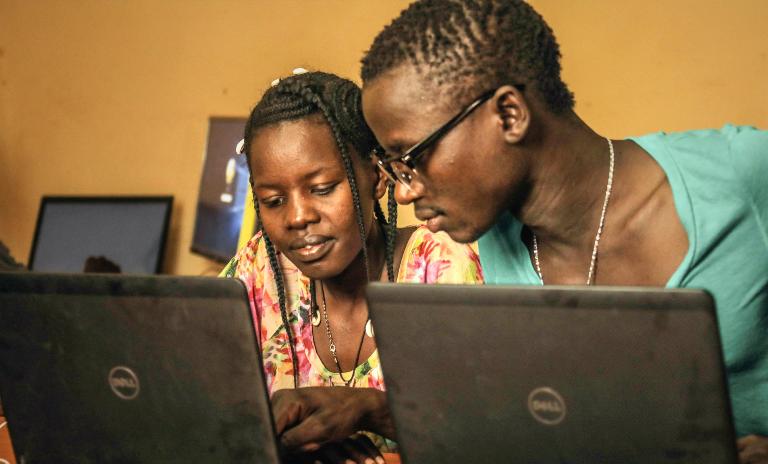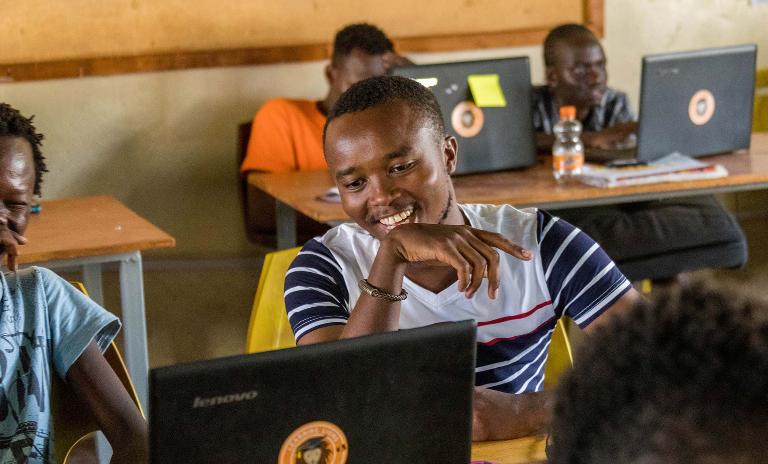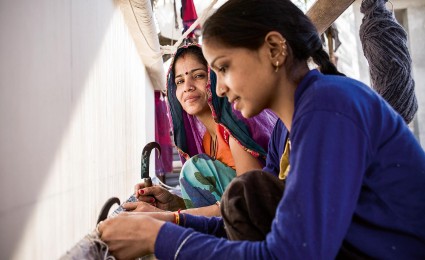

Tackling poverty with digital opportunity
Meet the Roland Berger alumnus fighting disadvantage in Africa
"Africa is full of ambitious young talents, and entrepreneurial energy is easily as tangible in Lagos or Nairobi as in Berlin or Silicon Valley."
Roland Berger alumnus Benedikt Wahler is Co-Founder of Startup Lions . The three-year-old start-up is a social venture that fights poverty with digital opportunity.
In just nine months, it teaches young people in disadvantaged and rural parts of Africa IT & digital media skills and empowers them to plug into the global digital economy.
Startup Lions shows how young women and men can boost the economy, even in an area of widespread unemployment and poor infrastructure.
We talked to Benedikt Wahler about his startup and the daily work with the 'Lions'.

What was your idea behind Startup Lions?
Ludwig Bayern, one of the Co-Founders told me about his disappointment with the limitations of traditional development concepts. The digital skills he had first taught himself as a teenager could offer much bigger potential for change: if digital nomads can work from a beach, we should bring digital to actual nomads! We felt inspired by the idea that even in poor and remote areas of Africa we can find and train talents and link them up to the international digital economy. With computers, connectivity and skills, young women and men who otherwise would be herding goats and camels could work creatively and earn good livelihoods.
Benedikt worked for Roland Berger with a focus on banks in Sub-Saharan Africa at offices in Lagos, Nigeria, Frankfurt and Bahrain from 2010 to 2014.
What is the structure of the program like?
We have an integrated concept from selection of talents via digital vocational training to job creation and entrepreneurship. Our non-profit
Learning Lions takes in 30 talents per semester. Three months basic computer skills are followed by six months advanced skills like Web Design, Programming, Graphics or Animation. It’s all very hands-on in a mix of lessons, mentoring and self-study. Lions receive full stipends so even the poorest can focus on learning. Our sales agency Digital Lions then sources clients and projects from around the world via micro-tasking, IT agencies and directly. Finally, Startup Lions incubates those who want to launch their own firm.
How is the response of the Lions so far?
The response is incredibly positive! It is truly inspiring to follow them from the beginning with no experience in using a computer to developing websites or animated videos a few months later. A NGO even caught it on video. What really makes us proud is to see the confidence of these young women and men grow as they now can earn for their families more than their parents ever did in what is one of the poorest corners of the world. But we also learn from our Lions and adapt to their needs. A good example is the special module we shaped for our female talents with life skills training to help them balance demands of their families and their new job.

What impact could initiatives like Startup Lions have on the future?
The concept of fighting poverty with digital opportunity can work in every rural area around the world and has less barriers implementing it than the old school industrialization. We see our proof-of-concept now as first step to scaling this model up in many more places. More generally, our work is just one illustration of the tremendous opportunities of Africa: the continent is full of ambitious young talents, and entrepreneurial energy is easily as tangible in Lagos or Nairobi as in Berlin or Silicon Valley. When you then add some capital, perseverance and the professionalism to build a solid organizational foundation, you get a really great mix for success.
And what in general did you learn at RB that is still helping you today?
On the one hand, the time I spent on more than 20 projects in Africa helped me a lot: about where to find dynamism and strategic opportunities of the private sector on the continent, and the strategies to tap into them. On the other hand, the consultant toolkit of a structured approach to novel challenges that I learned at Roland Berger is a very important skill in my daily work. As a banker, this was new for me and it made me much more well-rounded in advising clients and running own ventures.
Starup Lions was founded in 2014 and has its first site in Turkana County, a semi-desert and Kenya’s poorest region. The company builds a fair-trade model of outsourcing services and economic development for poor, rural areas focused on IT and digital media services. The project is mostly self-funded by its international team of Co-Founders, and supported by donations and international professionals who join as volunteers from anywhere between two weeks to 12 months.




